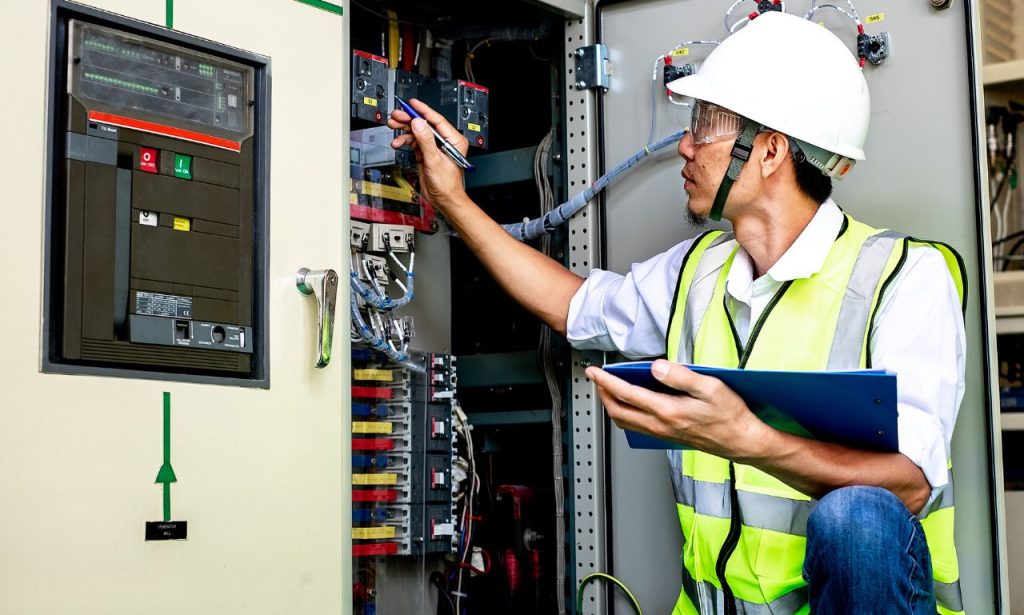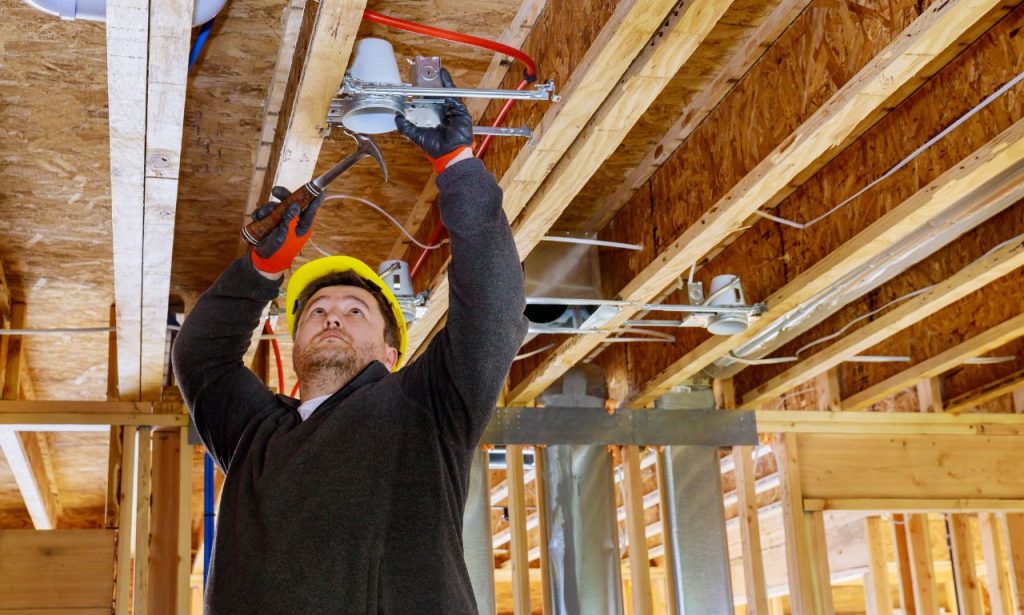Thinking about making your mark in the electrical industry? Becoming an Indiana electrical contractor could be your ticket to a successful and rewarding career. Here’s everything you need to know to get started, including licensing requirements, steps to follow, and benefits of pursuing this career.
Overview of Electrical Contracting in Indiana
Electrical contracting in Indiana offers an exciting opportunity to work on a wide range of projects—from residential installations to complex commercial and industrial systems. Whether you want to fix electrical issues, install new electrical systems, or handle emergency services, the market is broad, and the demand for skilled contractors is high. However, before you start providing electrical services, you must secure the necessary licenses and qualifications to ensure that you are in compliance with state and local regulations.
Importance of Licensing and Qualifications
Getting a license isn’t just a legal box to check; it sets you up for long-term success. It helps ensure that you meet safety standards, makes you more attractive to potential clients, and allows you to bid for major contracts. Licensed electrical contractors are recognized as experienced professionals who provide safe, reliable service. In an industry where safety and compliance are paramount, being licensed sets you apart from unqualified workers and opens the door to commercial projects, industrial projects, and residential services.
Benefits of Becoming a Licensed Contractor

- Legal Compliance: You’ll be operating legally, which protects both you and your clients.
- More Job Opportunities: Only licensed contractors can pull permits, work on commercial and industrial projects, and bid on bigger projects.
- Higher Earnings: Licensing gives you credibility, allowing you to command higher fees and access higher-paying jobs.
- Increased Credibility: A licensed contractor is more likely to secure contracts with satisfied customers, as they offer proof of knowledge and compliance with safety standards.
- Diverse Career Opportunities: As a licensed Indiana electrical contractor, you can work on a wide range of projects, including electrical upgrades, circuit installations, electrical panel upgrades, and much more.
What are the Licensing Requirements in Indiana
Why Licensing Varies by City and County
Indiana doesn’t have a statewide electrical contractor license. Instead, each city and county has its own requirements, which may include varying experience levels, exam scores, and application fees. For example, the requirements for becoming a licensed contractor in Fort Wayne may differ from those in Indianapolis or Evansville. These local differences are influenced by unique municipal building codes and ordinances, which makes it essential for aspiring contractors to understand the licensing process within their jurisdiction.
Common Requirements Across Municipalities
While licensing requirements vary by city and county, there are some common elements across Indiana:
- Work Experience: Most municipalities require a minimum of 4 to 8 years of work experience. Some may accept apprenticeship programs or relevant college coursework as part of the work experience requirement.
- Examinations: Master and journeyman electricians are usually required to pass an exam. The passing score typically ranges between 70% and 75%, depending on the jurisdiction.
- References: Applicants are generally required to provide three letters of reference. These references help verify the applicant’s experience and professional reputation.
- Insurance: Licensed electrical contractors must hold a general liability insurance policy to protect themselves and their clients. Insurance requirements vary, but they generally start at $500,000 in coverage.
Different Types of Electrical Licenses in Indiana
Journeyman Electrician vs. Residential Electrician vs. Master Electrician
- Journeyman Electrician: Journeymen electricians can perform electrical work but must be supervised by a master electrician. They are generally responsible for carrying out installations and repairs, but their scope is limited compared to a master electrician.
- Residential Electrician: Residential electricians are licensed to work on one- and two-family homes. Their work is focused on small-scale projects, including installations, repairs, and upgrades in residential properties.
- Master Electrician: A master electrician can supervise journeymen and apprentices, pull permits, and perform work on a wide range of projects, including residential, commercial, and industrial projects. They can also operate independently as a contractor and take on complex projects.
Scope of Work Permitted Under Each License
- Journeyman Electrician: Can perform a variety of electrical tasks but must work under the supervision of a master electrician. Their work often includes installations, repairs, and maintenance of electrical systems in residential and commercial settings.
- Residential Electrician: Limited to electrical services in one- and two-family homes, such as wiring, electrical panel upgrades, and basic electrical repairs.
- Master Electrician: Can supervise other electricians, pull permits, and work on a broad range of projects. Master electricians are also responsible for ensuring that all work complies with electrical codes and safety regulations.
Steps to Become a Licensed Electrical Contractor in Indiana
Step 1: Meet Basic Qualifications
- Age: You must be at least 18 years old.
- Work Experience: Typically, you need 4 to 8 years of work experience, which can include time spent in apprenticeship programs or on-the-job training under a licensed master electrician.
- Education: Some municipalities allow relevant college courses to count toward the work experience requirement, particularly if the coursework is related to electrical engineering or electrical safety.
Step 2: Form Your Business
Before you can apply for a license, you’ll need to form a business entity. Many contractors choose to establish an LLC for the tax advantages and limited liability protection it provides. Forming an LLC also adds credibility to your business, as clients are more likely to hire a company that appears professional and reliable.
- Choose Your Business Structure: Decide whether you want to establish a sole proprietorship, partnership, LLC, or corporation. Each structure has its pros and cons related to liability, taxation, and operational flexibility.
- Register Your Business: After deciding on the business structure, register it with the Indiana Secretary of State. You may also need to obtain an Employer Identification Number (EIN) from the IRS.
Step 3: Submit Application and Fees
- Application: Submit your completed application along with proof of work experience, references, and educational qualifications. Make sure all documentation is properly notarized where required.
- Fees: Application fees vary by city and county, typically ranging from $90 to $300 depending on the type of license being applied for. Some municipalities may charge additional fees for exams, permits, or processing.
- Background Check: In some jurisdictions, a background check is part of the application process. You must not have any disqualifying offenses on your record.
Step 4: Pass the Licensing Exam
- Exam Details: The exams are usually administered by Prometric or the International Code Council (ICC) and cover topics such as electrical codes, wiring methods, and safety practices. You may need to take different exams for journeyman, residential, or master electrician licensing.
- Passing Score: The required passing score is typically between 70% and 75%, depending on your jurisdiction.
- Preparation: Exam preparation courses are available through community colleges, trade schools, and industry organizations like the Independent Electrical Contractors (IEC) or International Brotherhood of Electrical Workers (IBEW).
Step 5: Insurance Requirements and Bonding
- Insurance: Electrical contractors must maintain liability insurance to protect themselves and their clients from financial losses in case of accidents or damages. Most cities require a minimum of $500,000 to $1 million in general liability coverage.
- Surety Bond: Many cities also require electrical contractors to post a surety bond. The bond amount is typically around $15,000 and is intended to protect the client if the contractor fails to meet contractual obligations or comply with local codes.
City-by-City Licensing Differences
Licensing in Indianapolis, Fort Wayne, Evansville, and South Bend

- Indianapolis: To become a licensed electrical contractor in Indianapolis, you need either a Master or Residential license. Applicants must have six years of documented work experience and three signed reference letters. Once the application is approved, you must pass an exam with a score of at least 75%.
- Fort Wayne: Fort Wayne requires eight years of work experience, with at least four years as a journeyman electrician. The exam requirements are similar, with Prometric administering the exams and requiring a passing score of at least 70%.
- Evansville: Applicants in Evansville must provide proof of insurance coverage, a surety bond, and three notarized letters of reference. The licensing exam must be passed with a score of 75%, and fees include $300 for the Master license and $30 for the Journeyman license.
- South Bend: The city of South Bend offers Class A and Class B contractor licenses. Class A allows broader project work, while Class B is limited to specific industrial projects. Applicants must submit a resume of work experience, along with a passing score on the Prometric exam.
Specific Requirements for Each City
- Experience Requirements: Varies between 4 to 8 years depending on the city. Applicants need to demonstrate that they have completed the required work experience under the supervision of a licensed electrician.
- Insurance and Bonding: The insurance requirements also vary by city, with liability coverage ranging from $500,000 to $1 million. Surety bonds are usually required, often in the amount of $15,000.
Benefits of Becoming a Licensed Electrical Contractor
Legal Compliance
Being licensed means you’re operating within the law, which protects both you and your clients. Compliance also helps you avoid potential legal and financial repercussions, such as fines or work stoppages, which can result from unlicensed work.
Ability to Pull Permits and Bid on Public Projects
Only licensed contractors can pull permits for projects, which is essential for bigger jobs, including public works and large commercial projects. This allows you to legally perform electrical work and ensures that your projects meet local building codes and safety standards.
Increased Earning Potential and Credibility
A licensed contractor is more likely to secure high-profile jobs and command higher rates. Clients prefer working with professionals who are verified by their local jurisdictions. Licensing also allows you to expand your business by bidding on larger commercial and industrial projects, which can significantly increase your earnings.
Common Challenges and Tips for Success
Preparing for the Licensing Exam
- Study Guides: Use local and online resources to prepare, including practice exams. The National Electrical Code (NEC) is a critical component of the exam, so make sure you are familiar with the latest edition.
- Courses: Consider taking a prep course from organizations like the IEC, IBEW, or local community colleges. These courses provide valuable insights into the exam format, topics covered, and test-taking strategies.
- Practice Tests: Practice exams are an excellent way to prepare for the licensing exam. They help you become comfortable with the format of the questions and identify areas where you need further study.

Since each city in Indiana has its own rules, navigating these can be challenging. Always check with your local licensing office to ensure you’re meeting all requirements. Make it a habit to stay updated on changes in local building codes, licensing requirements, and industry standards.
How to Avoid Common Pitfalls
- Incomplete Applications: Make sure your application is filled out completely and correctly. Missing documentation or incomplete information can lead to delays or even rejection.
- Insurance Gaps: Don’t overlook insurance requirements, as they are a key part of maintaining your license. Be sure to renew your insurance coverage annually and meet the minimum liability coverage standards.
- Failing to Prepare for the Exam: Many candidates underestimate the difficulty of the licensing exam. Take time to study, use exam prep resources, and familiarize yourself with the NEC.
Take the first step toward your future today. Get the skills, meet the requirements, and set yourself up for a career that’s both lucrative and rewarding. Start your journey now, and be part of an industry that powers the world.
ALSO READ: How to Work for Insurance Companies as a Contractor
FAQs
The cost can range from $90 to $300 depending on the type of license and the city you’re applying in. Additional fees may apply for exams, permits, and insurance requirements.
Typically, licenses need to be renewed every 1-3 years. Renewal requirements may vary by municipality, so it’s essential to check with your local licensing authority.
The average salary for electrical contractors in Indiana is around $68,450 per year, but it can be higher for licensed master electricians or those who work on larger projects. Earnings vary based on experience, location, and project complexity.
Most cities require general liability insurance, often at least $500,000 in coverage. A surety bond of $15,000 is also commonly required to protect clients and ensure compliance with contracts.




